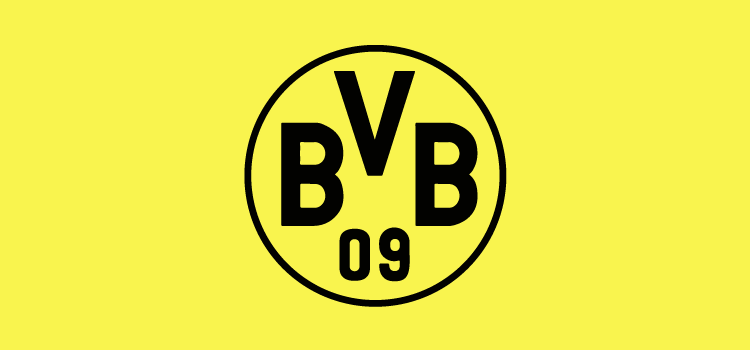Dortmund snatch 3 vital points in a below-par performance

Sunday’s fixture provided an attractive duel between Dortmund and their ‘Borussen’ rivals, Borussia Moenchengladbach. The hosts came into the game on the back of 3 previous defeats while Dortmund were riding high after winning their 1st leg Europa League tie in the dying seconds of the game. The game that followed, however, defied both teams’ form and by the end of the night, it was a moment of brilliance that separated the two sides.
Lineups:
The opening exchanges of the match saw both teams settle down into their respective formations while implementing their game plans assertively. Dortmund lined-up in the same formation as last week’s victory over Hamburger but Peter Stoeger made 3 changes to the team’s personnel. Gonzalo Castro replaced Shinji Kagawa who had a dismal game against Hamburger and it was a logical choice. Although Castro doesn’t contribute much to the team’s offensive play, he offers a workmanlike approach to the game, almost like a German James Milner. His experience playing in a range of positions throughout his career has not only made him versatile but he has developed a useful skill set that is key to carrying out defensive game plans. Mario Gotze made his return to the starting line up as did Sokratis who partnered the Manuel Akanji at centre-back.
The 4-2-3-1 formation set out by Stoeger was convenient for his counter-attacking plot against a very aggressive and courageous Moenchengladbach side that characterizes their experienced manager Dieter Hecking. ‘The Foals’ were direct during their build-up phase in which they utilized the strength of Raul Bobadilla as an outlet to bypass Dortmund’s high press. Jonas Hoffman and Thorgan Hazard often drifted infield to provide support whenever the long ball was played into Bobadilla while Reece Oxford and Nico Elvedi provided width on the flanks.
Moenchengladbach were successful in advancing up the pitch for most parts of the first half but the combination of Julian Weigl and Castro continuously managed to recuperate from being caught out of position to prevent any goal threats down the middle. When they regained possession, Dortmund were always looking for gaps in the Moenchengladbach defensive structure. They executed their counter-pressing well and this allowed them to efficiently counter-attack when the opportunity came their way. They always looked to play the first pass forward upon winning the ball back and this approach paid off in the 31st minute when Marco Reus put them in the lead. After winning the ball back in their own half, Julian Weigl played a short pass to Mario Gotze who had the vision and technique to play a diagonal pass deep into Moenchengladbach territory. Andre Schurrle received the ball in his stride, spotted Marco Reus at the opposite end of the box and played a chipped pass towards him. After Reus surveyed his options, he took a swing at the ball and grabbed the all-important opener in a crucial moment in the game. At this point of the game, the match was very balanced but the goal put the onus on the hosts to attack, and attack they did.
Moenchengladbach defended using a basic 4-4-2 zonal-marking system based in deep midfield. Dieter Hecking probably figured out that Dortmund’s build-up play(when they are afforded time and space on the ball against opponents who defend deep) is often slow, with lots of sideways and backwards passing. His front two of Lars Stindl and Bobadilla blocked passing lanes from Dortmund’s centre-backs into Weigl and Castro. With Hazard and Hofmann oriented towards the halfspaces, Moenchengladbach’s shaped forced the visitors’ backline to play laterally. When the ball was played into the fullbacks(and provided the team’s pressing block was in close proximity to the ball), the two wingers would be triggered to move out of the inner areas and press on the touchline.
As a result, Dortmund were ineffective on the ball and even direct passes into Batshuayi, who did a decent job of holding up play early on, didn’t produce a lot of goalscoring chances. Moenchengladbach took advantage of their time in possession by playing directly and also using the wide areas to combine and progress further down the touchline. Their progression out wide also allowed them to create chances by crossing the ball as often as they could but to no avail. They did, however, win several set-pieces by attempting all those crosses. The recurring corners that they won, put Dortmund under great pressure and if it weren’t for Burki’s solid performance(and an interesting VAR call) the hosts might’ve scored a goal or two. On other occasions, their play out wide would create gaps in the centre which they exploited a few times by testing Burki from range. Unfortunately, they couldn’t get past the shot-stopper, no matter how many times Lars Stindl got a shot in from a promising position.
The second half played out much like the first but Dortmund began to see less of the ball and committed themselves to defending their advantage instead. Mario Gotze faded out of the game and he was replaced by Christian Pulisic who didn’t do much to affect the game. Even the introduction of Mahmoud Dahoud did little to help gain control of the ball and dictate the flow of the game, which was clearly in Moenchengladbach’s favour. Andre Schurrle who’d had a very lively performance began to receive very little support going forward. It must be mentioned though, that he had an excellent game, receiving the ball in deep areas and carrying it forward time and again. Toljan would usually get ahead of him on the overlap while the German came deep to collect the ball.
Their synergy on the left was good to see but it didn’t have an effect on the resulting scoreline, barring Schurrle’s brilliant run of course. His perfectly timed run and quality before assisting Reus’ goal made all the difference in such a difficult fixture for the visitors. The main issue Dortmund faced in offense(especially as the game neared its ending) occured whenever they reached the final 3rd. Their attack would constantly break down due to a combination of poor movement and slow decision-making and they displayed the same frustrating feature(of their offensive play) throughout the game. They should’ve been more dynamic in that area but they weren’t and this led to numerous turnovers. Their lack of incision was hard to watch but in the end, their patience and ability to play on the backfoot got them a deserved three points.
All in all, the result was a positive one albeit with a disappointing performance from a fan’s perspective. We’re used to seeing sharp and thrilling attacking displays by Dortmund but under Stoeger, the swashbuckling(Gosh, that’s a beautiful word) style of play has had to be put on hold in favour of getting results. And let’s not forget the miserable position the team was in a couple of months ago where the naïve attacking play left the team disorganised at the back. So although it was an unsatisfactory showing by the boys in Black and Yellow, the three points were all that mattered on the night. The team are now unbeaten in 7 games and go into Thursday night’s second leg fixture against Atalanta in the best way possible. There’s no doubt that the team are capable of grinding out another win that would take them to the next round of the Europa League. Will they do it? I certainly think so…but I guess we’ll just have to wait and see.


